AI Wars: Which Tech Giant’s Artificial Intelligence is better?
![]() Ujjwal Maheshwari, June 17, 2024
Ujjwal Maheshwari, June 17, 2024
Artificial Intelligence (AI) is no longer just a futuristic concept—it’s here, transforming our daily lives from the way we commute with self-driving cars to how we interact with our smart devices at home. As AI continues to evolve, an important question surfaces: Who is really pushing the boundaries of this technology?
Why It Matters
Artificial Intelligence has gone beyond just being a buzzword—it’s a revolutionary force across multiple industries, including healthcare, finance and transportation. Its incredible ability to process extensive data and make informed decisions is revolutionising the way we work, improving efficiency and opening doors to new opportunities. Keeping an eye on the leaders in this space is crucial because their innovations are not just advancing technology—they’re shaping the future right before our eyes.
Early AI Development
The story of Artificial Intelligence starts way back in the mid-20th century with brilliant minds like Alan Turing and John McCarthy leading the way. Turing, in his influential 1950 paper “Computing Machinery and Intelligence,” first floated the idea that machines could think like humans. McCarthy later coined the term “artificial intelligence” in 1956 and helped kickstart the first Artificial Intelligence programs, setting the stage for a new era of technological breakthroughs.
Through the years, Artificial Intelligence has grown by leaps and bounds. In the 1950s and 60s, it was all about solving puzzles and thinking logically—what we now call Symbolic AI. The 1980s saw the rise of machine learning, where computers began learning from data, getting smarter as they went along. Then came the 2000s, a turning point with the advent of deep learning. This meant computers could now handle tasks like recognising faces or understanding spoken words, skills that seemed almost human.
There’s a big prize for the winners in Artificial Intelligence
Fast forward to today, and it’s the big tech companies like Google, Microsoft, IBM, Apple, Amazon and Meta that are leading the charge, intending to beat their fellow behemoths and any other aspiring companies that could challenge their market dominance. It’s also about grabbing a bigger slice of the market and earning trust with successful products that rake in profits. The race to the top involves constant innovation, churning out new technologies and securing patents. Of course, it goes without saying, they’re shaping our future just as previous innovations from many companies have. But let’s take a look at what some of these companies are doing individually.
The Major Players in the Artificial Intelligence Race
Google/Alphabet
Sundar Pichai, the CEO at Google, recently declared, ‘Artificial Intelligence is at the heart of everything we do, aiming to make products that really help people’. Whether or not they will help people is up for debate, but the fact that Google is a major player in Artificial Intelligence is not – running big projects like Google AI, DeepMind and Tensor Flow. One of its biggest wins was when DeepMind’s AlphaGo beat a world champion in Go, showing just how smart AI can be.
Google’s efforts stretch from healthcare advancements to self-driving cars and helpful virtual assistants, touching lives across various sectors. With over 20,000 patents and a cool $30 billion a year from AI ventures, Google is one of the leaders in this field. The company pours more than $16 billion into research and development annually, bringing top minds like Geoffrey Hinton and Demis Hassabis on board.
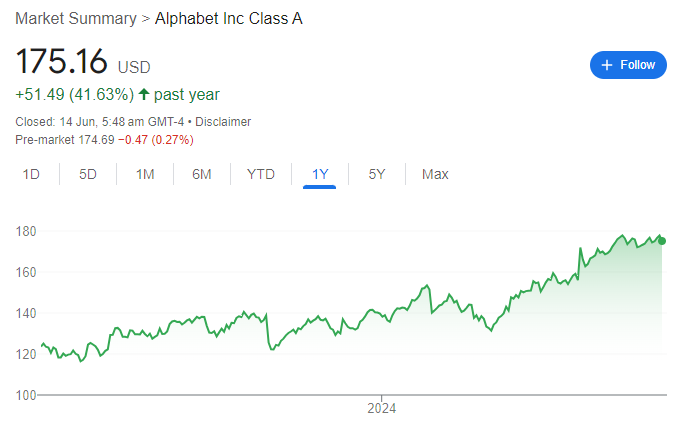
Microsoft
Microsoft is another heavy hitter with its Azure AI, Microsoft Cognitive Services and ties with OpenAI. Azure helps businesses use powerful Artificial Intelligence tools, contributing a massively to Microsoft’s $50 billion cloud earnings. The company holds over 18,000 AI patents and spends about $20 billion on research each year. Microsoft integrates Artificial Intelligence into everyday tools, like Office 365, making work smoother for millions.
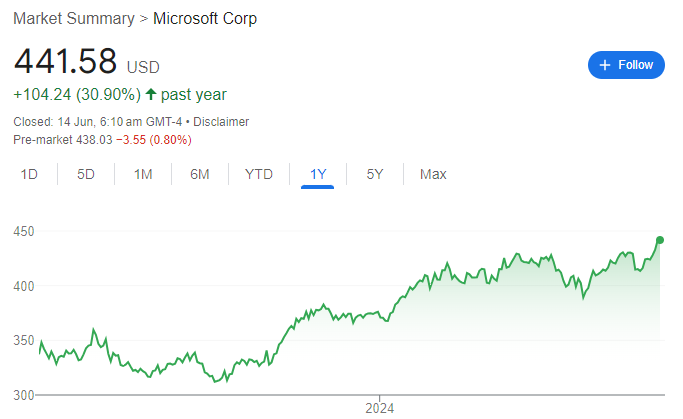
IBM
Many people think that IBM is no longer a tech giant, something that is not the case. The US$150bn company has made several strides in this space. It bought software company Red Hat for US$34bn in 2019 and hired current CEO Arvind Krishna a year later. Revenues from Red Hat have doubled every single year since it was acquired as it has been the foundation of a hybrid cloud platform. IBM now generates less than a quarter of its revenues from its traditional mainframe systems. 32% comes from consulting and 43% comes from software – the balance being financing. The company also has its eyes set on the future, looking to get into Artificial Intelligence by launching watsonx, a multi-service platform with open-source libraries, models and datasets.
Krisha has declared that Artificial Intelligence will infuse ‘every single IBM product we have’. IBM is most well-known for its Watson Artificial Intelligence, helping out in business and healthcare. Watson has been used for everything from diagnosing diseases to boosting customer service.
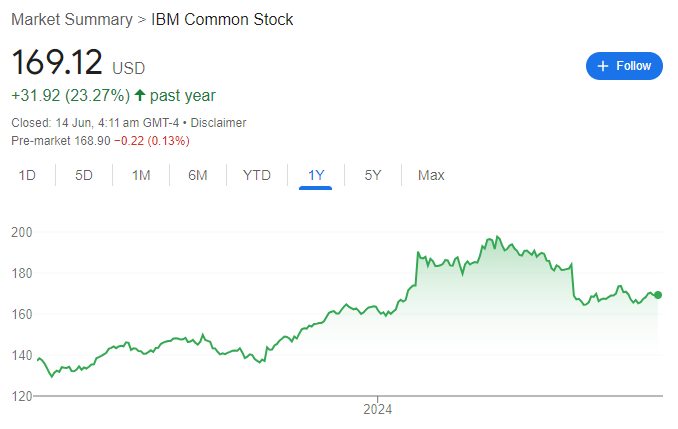
Amazon
Amazon is not just an online retailer, it has one of the biggest Cloud businesses in the world – Amazon Web Services (AWS). AWS fulfils a lot of things ‘in house’ – in other words, it powers Amazon’s online shopping and Alexa amongst others. But through selling services to other businesses, AWS makes Artificial Intelligence tools accessible to more businesses, with Amazon raking in $45 billion from cloud services.
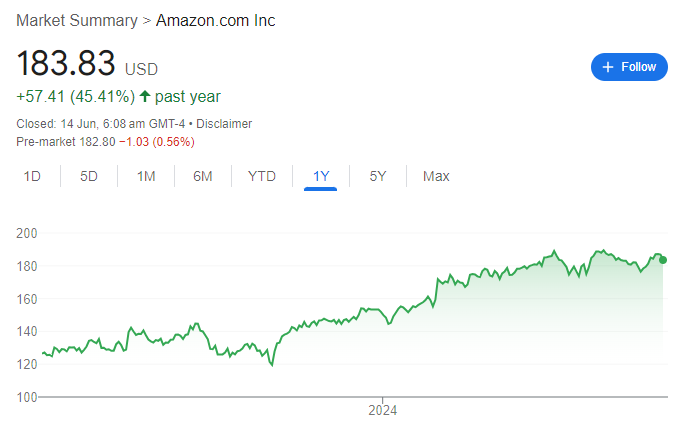
Meta (Facebook)
Meta, known for social networks like Facebook and Instagram, is pushing Artificial Intelligence in social media, virtual reality and the emerging metaverse. Most readers are likely thinking of that annoying ‘Meta AI’ that pops up in Facebook and Instagram searches – we end up accidentally pressing it and it tells us our friend John Smith had a football or political career we never knew about.
In the past week, there have been media reports that Meta is working on Artificial Intelligence tools and using posts going as far back as 2007 to train them, something you can only opt out of in Europe or the US state of Illinois. And last month, it announced an expansion in AI-based advertising features where past campaign performances can be analysed and used to mimic a brand’s tone in newly generated content.
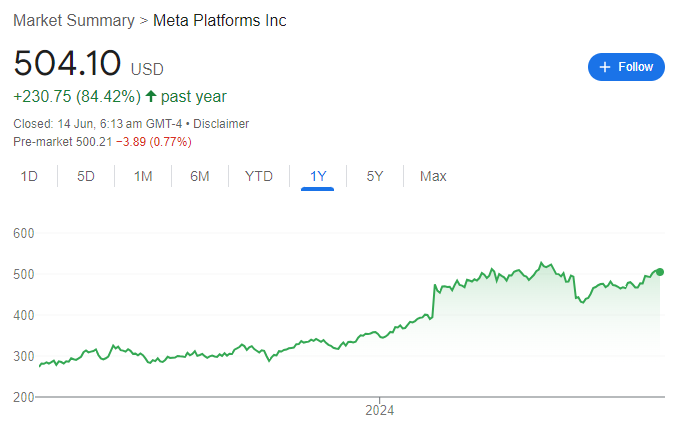
Apple
Apple uses Artificial Intelligence to make applications like Siri smarter while focusing strongly on user privacy. This company’s AI features, part of a whopping $365 billion revenue, are all about keeping user data safe and integrating Artificial Intelligence smoothly into our daily tech.
Apple is big on R&D too, spending about $27 billion each year, and its team is dedicated to making AI that respects privacy. Tim Cook stresses that, “Privacy is a basic right and our AI shows that commitment.”
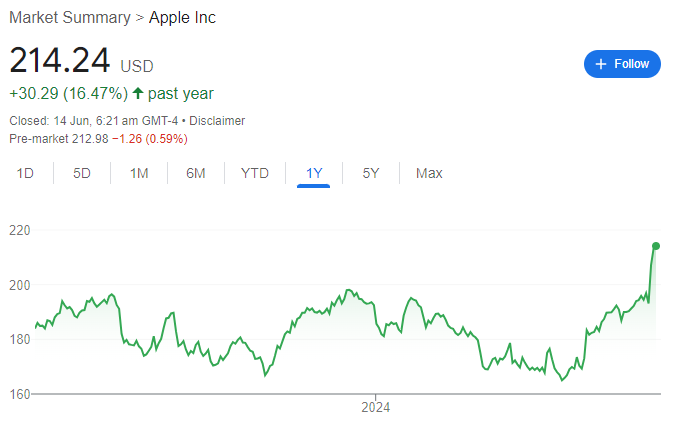
Other Notable Players
Companies like Baidu, Tencent and NVIDIA are also big names in Artificial Intelligence, each pushing the envelope in areas like autonomous driving and social media. NVIDIA, for instance, is vital for AI computations with its powerful GPUs. These firms are part of a broader group that’s shaping the future of AI, innovating in ways that will redefine technology as we know it.
So Who is Leading?
The outlook for Artificial Intelligence is incredibly promising. Innovations are expected to continue at a rapid pace, particularly in fields like healthcare, autonomous systems and personalised Artificial Intelligence solutions. We believe Google and Microsoft, with their vast resources and commitment to innovation, are likely to maintain their leadership positions. Amazon and Meta are likely to further weave Artificial Intelligence into the fabric of their core operations, enhancing both user experience and operational efficiency.
Looking ahead, emerging trends such as edge computing are set to revolutionise AI by bringing processing closer to where data is generated (Edge AI), thereby enhancing speed and efficiency. Ethical considerations in Artificial Intelligence are gaining prominence, with an increasing focus on developing technology that is fair, transparent and accountable. Additionally, the application of Artificial Intelligence in developing economies is expected to grow, driven by unique regional challenges and opportunities. This landscape suggests a dynamic future where AI not only evolves technologically, but also broadens its impact globally.
What are the Best ASX Technology Stocks to invest in right now?
Check our buy/sell tips
Blog Categories
Get Our Top 5 ASX Stocks for FY25
Recent Posts
ESG (Economic, Social and Governance) investing in 2025: Here’s an investor’s ultimate guide
ESG has become one of the most popular acronyms in the investing world, and a quickly growing trend. Few investors…
3 years since Block shares listed on the ASX: It was set to soar new heights in 2025, until Trump’s tariffs
The Afterpay acquisition was not just noteworthy because it was the biggest corporate takeover in Australian history, but also because…



